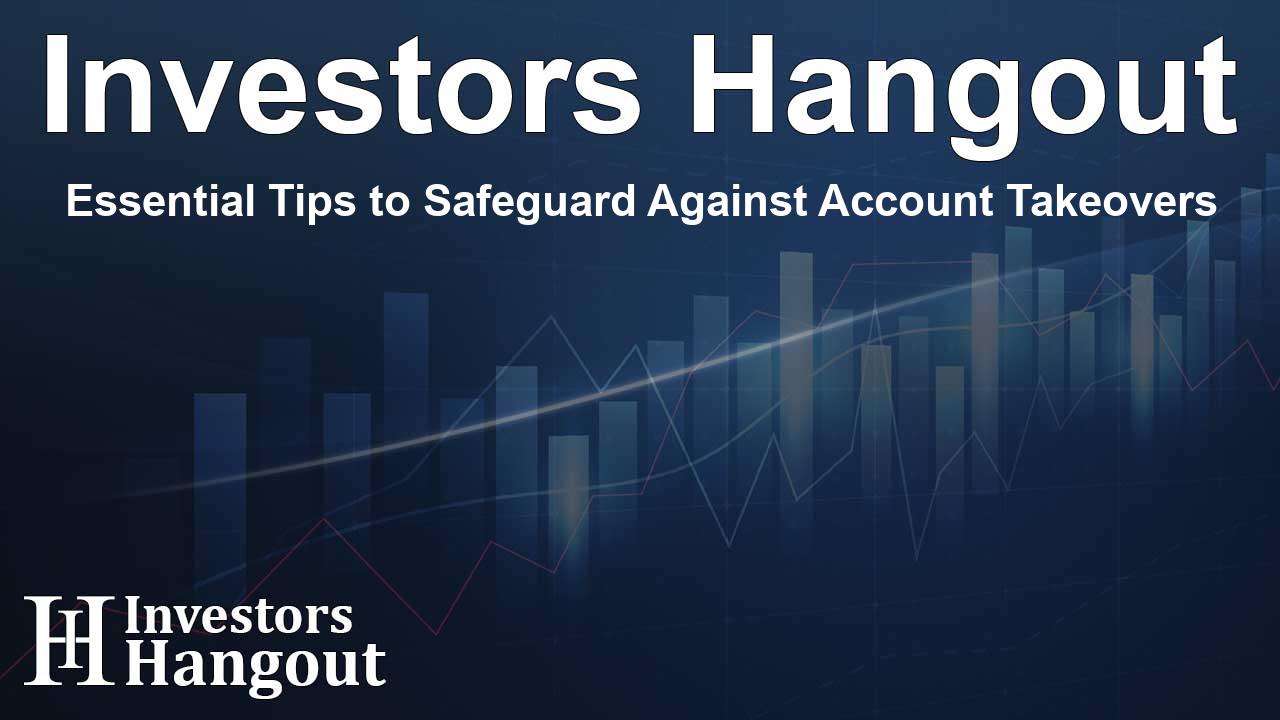Essential Tips to Safeguard Against Account Takeovers

Essential Tips for Preventing Account Takeover Scams
Account takeover scams are becoming increasingly common, affecting individuals from all walks of life, including those deeply embedded in the finance industry. Recently, a former vice president from Mastercard shared her harrowing experience of almost losing a significant sum to such a scam.
Understanding Account Takeover Fraud
Account takeover fraud occurs when criminals gain unauthorized access to personal accounts, which can range from social media profiles to banking accounts. They employ various tactics to achieve this, including stealing credentials purchased from the dark web or using social engineering techniques that trick victims into revealing their passwords.
Catherine Woneis’s Close Call
Catherine Woneis, a former Mastercard executive, came shockingly close to losing nearly $100,000 after fraudsters hacked her real estate agent's email. With access to sensitive information through this route, the scammers impersonated a title company and lured Woneis into believing they required an immediate payment.
The Alarming Rise in Scams
According to recent reports, account takeover scams surged by an overwhelming 354% in a recent year, leading to losses amounting to $13 billion. This steep increase underscores the urgency for all individuals to remain vigilant about their online security.
How Scammers Operate
In Woneis’s situation, the criminals used a method known as "credential stuffing," which leverages AI bots to automate the process of guessing usernames and passwords. They capitalize on information gleaned from emails related to Woneis’s transactions to craft messages that look legitimate.
Spotting the Red Flags
Woneis recounted how the fraudulent emails included wire instructions that mimicked those of the legitimate title company. What helped save her was a critical check—a simple verification of the email address. Although the email appeared authentic, it contained discrepancies she ultimately recognized.
Take Action to Protect Yourself
In this digital landscape, it's essential to take proactive measures against potential fraud. If you suspect any of your accounts may have been compromised, here are some immediate steps to follow:
Change your usernames and passwords across all accounts, focusing on strong, unique passwords.
Enable two-factor authentication for sensitive accounts to provide an additional layer of security.
Report any suspicious activity to designated fraud authorities.
Innovations in Fraud Prevention
Woneis currently works at Fingerprint, a cybersecurity firm focused on advancing tools to counter account takeover threats. Their development efforts include algorithms capable of assessing the real-time location of website visitors and identifying bot activity traditionally indicative of brute-force attacks.
Conclusion: Staying Informed and Vigilant
As the tactics used by scammers evolve, it's paramount for everyone to stay informed about the risks and implement practices that can safeguard their financial health. Remember, vigilance and proactive measures can go a long way in ensuring your digital security.
Frequently Asked Questions
What is an account takeover scam?
An account takeover scam involves criminals gaining unauthorized access to personal accounts, often resulting in financial loss.
How can I identify a potential scam email?
Look for discrepancies like unusual email addresses, poor grammar, and urgency in communication which are common red flags.
What should I do if I think my account has been compromised?
If you suspect your account is compromised, change your passwords immediately, enable two-factor authentication, and report the issue to relevant authorities.
Are account takeover scams increasing?
Yes, recent statistics show account takeover fraud has surged significantly, highlighting the need for more robust security practices.
What is Fingerprint doing to combat these scams?
Fingerprint is developing tools and algorithms aimed at detecting and preventing account takeovers by analyzing visitor behavior and bot activity.
About Investors Hangout
Investors Hangout is a leading online stock forum for financial discussion and learning, offering a wide range of free tools and resources. It draws in traders of all levels, who exchange market knowledge, investigate trading tactics, and keep an eye on industry developments in real time. Featuring financial articles, stock message boards, quotes, charts, company profiles, and live news updates. Through cooperative learning and a wealth of informational resources, it helps users from novices creating their first portfolios to experts honing their techniques. Join Investors Hangout today: https://investorshangout.com/
Disclaimer: The content of this article is solely for general informational purposes only; it does not represent legal, financial, or investment advice. Investors Hangout does not offer financial advice; the author is not a licensed financial advisor. Consult a qualified advisor before making any financial or investment decisions based on this article. The author's interpretation of publicly available data shapes the opinions presented here; as a result, they should not be taken as advice to purchase, sell, or hold any securities mentioned or any other investments. The author does not guarantee the accuracy, completeness, or timeliness of any material, providing it "as is." Information and market conditions may change; past performance is not indicative of future outcomes. If any of the material offered here is inaccurate, please contact us for corrections.